coming out day for queer-identifying folks
Since 1988, October 11th has been internationally recognized as a coming out day for queer-identifying folks. In recent years, the hashtag #ComingOutDay and #Visibility have been prevalent in social media as a means for folks to share their experiences. In honor of this day, we will share a collection of online coming out stories sent to us by queer Iranian folks:
۱- Raha Farrokh:
Raha is a queer woman and a resident of Canada. She has been active on Twitter with her real name for almost a year. Raha has advocated for gender equality and women and queer rights for years. She is especially well-known for her activism on gender equality on Twitter. Below she shares her experience of coming out on twitter: “I don’t recall when exactly I knew that I was queer. I think I kind of knew from the beginning. Being attracted to the same gender was so ordinary for me since childhood that I innocently assumed that everyone else experienced the same thing. I grew up in a modern, non-religious and non-judgmental family where I was taught that everyone is unique. My first romantic relationship was with my high school girlfriend. I want to say that in the real world, I never experienced direct pressure to come out or conceal my sexual identity. Three years ago, I came out to my brother and mother and they told me that they already knew. Maybe the fact that my current romantic partner is a man-made thing easier too. However, I had a much different experience with coming out in the online world. A year ago before I joined twitter, my partner congratulated myself and the LGBTQ+ community on coming out day.
A few people asked what coming out and queer visibility meant but we didn’t receive any strange reactions. However, it was a different story when I also joined Twitter and retweeted his post. That’s when the hateful comments and harassment began. It was truly shocking and unexpected. Most of the harassment involved calling my partner honorless and slut-shaming me. The harassers were quick to label my queerness as hamjinsbaazee [a derogatory word for homosexuality, playing with one’s own sex in comparison with hamjinsgaraayee, the inclination to one’s own sex] and assume that my so-called strange and immoral relationship involved me having simultaneous sexual relations with both men and women. Although I tried my best to answer their questions and explain what it means to be LGBTQ+, they didn’t want to understand that being queer includes a wide spectrum of sexual orientations.
“Happy coming out day to my wife Raha whom I love dearly and to my LGBTQ+ friends!” Caption: Houshmand, Raha’s husband’s tweet, in celebration of coming out day
Soon after, targeted group attacks began. My partner and I were accused of spreading unrestrainedly and destroying the sacred family institution by promoting hamjinsbaazee . The interesting thing was that the harassers knew no boundaries whatsoever for the type and number of their questions. It was as if my being “out” on social media gave them the right to inquire about the most intimate parts of my life and relationship. Their reactions varied on a range of expressing shock to sending sexual and sexist threats to both me and my partner.
However, not all reactions were negative. During this short time, I met a lot of open-minded and understanding people. They were either queer themselves or they found my experience intriguing and admired me for it. I made a lot of good friends. Meanwhile, online harassment continue to this day.
The most recent one actually happened yesterday. Someone posted a photo of me claiming that I got gender reassignment surgery and used to be a man, setting aside the fact that being a man or transitioning to a woman is neither offensive nor something to be ashamed of.
- “Who’s sleeping with who is none of my business but it does become my business when you start to advertise your indecent behavior.”
- “Being proud of having a lesbian wife is not an open-minded thing to do. If you think your relationship isn’t other people’s business, then don’t tweet about it. Society shouldn’t be immoral and chaotic like this. Keep it to yourself.”
- “Wow, congratulations to you! Don’t you have any sense of honor” #honorless
- “So is your kid actually yours or her girlfriend’s? :/ in other words, are they yours or theirs?”
- “ Cuckold waits a minute come to explain this, you’re blowing my mind! So if you get a wife and she’s lesbian, you call that natural??”
Overall, the experience of coming out in the online world has been a true learning experience for me. I was surprised by both the positive and negative reactions I received. The most important thing, however, is that I am strong and I have developed a thick skin through my ten years of involvement with women’s rights and LGBTQ+ activism. Support from my partner and loved ones are also very crucial. But I understand that it’s not like this for everyone. Maybe if things were different and I didn’t have the privilege that comes with passing as “normal” due to having an opposite-sex partner, I would not have been able to survive this level of everyday harassment. Maybe it’s time we come up with a solution to protect the safety and wellbeing of LGBTQ+ folks in the online space.
- “I wish I could come out to my friends and family as well. Having to keep this a secret has bothered me for a long time, IRI (Islamic Republic of Iran) kills us every second of every day…”
- “With a delay, I would like to congratulate you as well!”
۲- Sahand Sahand has come out as a gay man on twitter while he has not revealed any other information about his private life and whereabouts. In response to the question, “Is coming out online easier or beneficial?” he writes: For me, coming out in the online space has generally been possible by taking on an anonymous persona. Back when writing blogs used to be popular and social media websites like Facebook and Twitter hadn’t become mainstream yet, reading blogs of gay individuals was the only safe haven for many homosexuals. Some bloggers had a lot of fans but barely any of those are left nowadays. I was cautious about my personal blog because a lot of friends and acquaintances had the address. If I wrote about homosexuality, it was very general and not about my own experiences. Or if I wrote about a boy I liked, I would not mention his gender. But now I don’t try to hide it anymore even on that blog and I write openly about the boys I like. On Facebook, I wrote and shared a lot of posts regarding queers as well. However, I have to admit that my turning point was twitter. I had a twitter account for years and I mostly used it to follow my favorite people and institutions, but a specific hashtag urged me to speak out on Twitter as well. I made a lot of friends and formed many relationships, some of which made their way into my real life as well. When I came out to my parents, I was active on Twitter. The support and encouragement I received through Twitter played a crucial role at a really difficult time in my life. One of the most enjoyable parts of my experience on Twitter is the fact that other queer folks trust me, share their stories with me and ask for my advice. Knowing that I can help others even in the smallest way is a great feeling. Overall, I have to say that I began coming out in the real world before all of this but I cannot easily say that my experiences on twitter had a truly positive impact on that process.
Farsi version: http://dojensgara.org/2017/10/12/3694

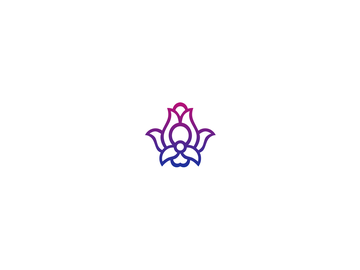
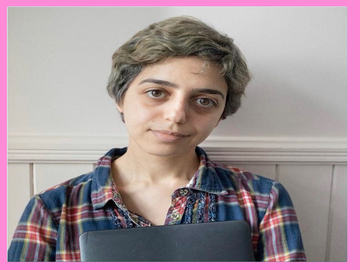
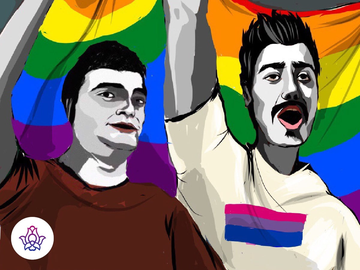
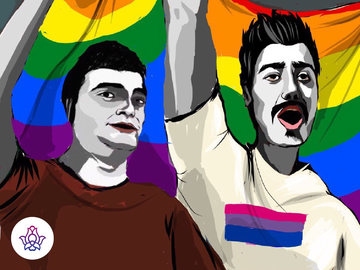
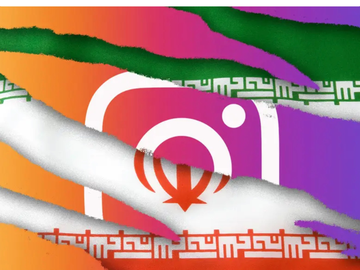
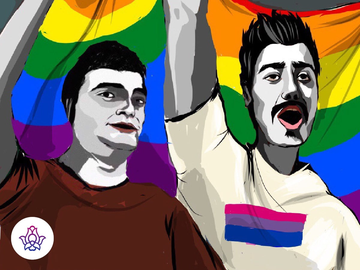
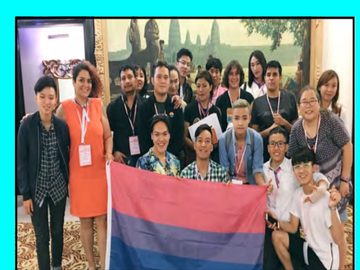
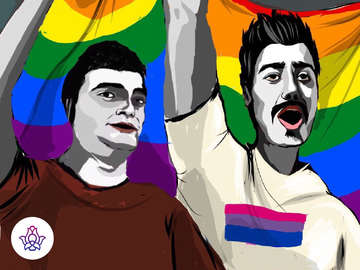
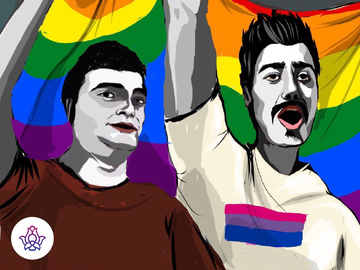
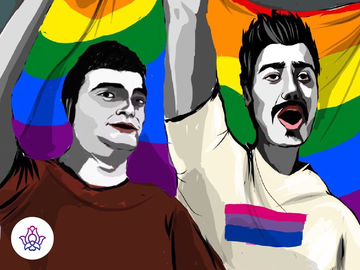
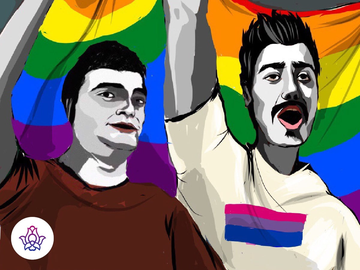
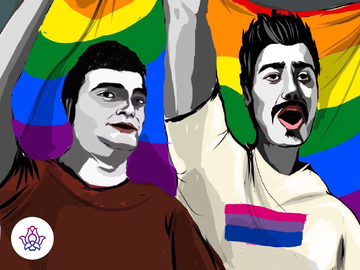
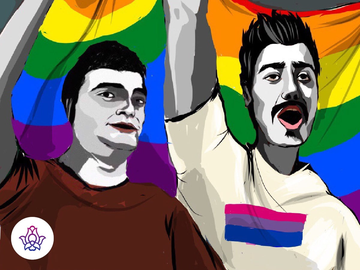
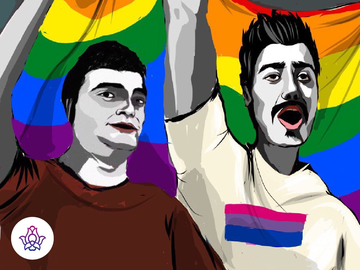
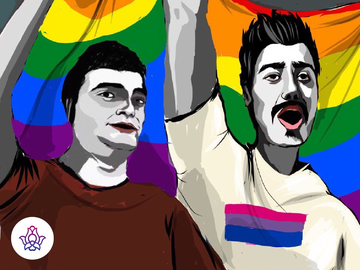
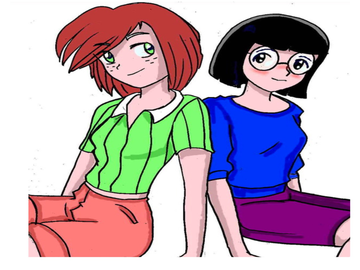
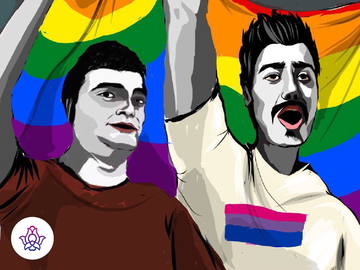
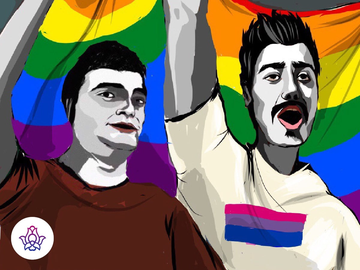
show me
All comments will be availabee after approvind by author